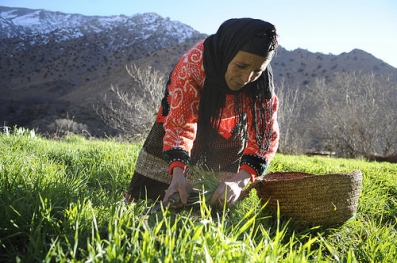Following the unanimous adoption, in December 2017, of the Decade of Family Farming 2019-2028, 2018 was marked by an intense planning process within the WRF. We believe that efforts to lay a solid foundation for the Decade will lead to an improved implementation of the initiative.
The WRF has presented to the interim International Steering Committee (pending the formation of the final Committee), which will be the main governing body of the Decade, the proposals of the IYFF +10 World Coordination Committee (WCC), and has made important advances, especially in agreeing on the need for a national dimension in the Decade, strengthening the chapter on planned objectives and achieving the presence of five regional Family Farming organisations in the future International Steering Committee. Another important element is the inclusion of the VI Global Conference on Family Farming in the Decade’s official programme, organised by the WRF and taking place in March 2019.
For its part, the process of creating the Family Farming Guidelines is progressing as anticipated (this year with special emphasis on the construction of Guidelines in five regions) and we are already close to meeting the desired goal of building consensus on the instruments and main measures to support family farming.
At a regional level, 2018 has seen the creation of the Family Farming Policy for Central America and the Dominican Republic, PAFCIA, thanks to the great work done by our partner organisation, PDRR, in which the National Committees on Family Farming have also played an important role. The PAFCIA has been approved by the Central American Agricultural Council (CAC), which brings together the governments of the region. We are now entering an interesting implementation phase.
In Africa, the WRF working with UMNAGRI (Union Maghrébine et de l’Afrique du Nord des Agriculteurs) has begun to take shape. This regional family farming producers organisation is present in seven countries: Algeria, Egypt, Libya, Sudan, Mauritania, Morocco and Tunisia.
In relation to Asia-Pacific, the WRF has worked together with PIFON, AsiaDHRRA and FAO so that PIFON could be included in the civil society platform preparing for the FAO Regional Conference that took place in Fiji at the beginning of 2018. We are pleased to see how our partners are managing to position themselves even better to promote Family Farming in their regions and countries.
At a national level, in 2018, the National Committees on Family Farming (NCFF), mostly led by WRF partner organisations, have continued to act as a fundamental pillar in obtaining improved public policies in favour of Family Farming, especially in the Dominican Republic, Paraguay, Colombia, Costa Rica, El Salvador, Chad, Senegal, Madagascar and Indonesia.
According to our database, 28 proposals have been created since 2016 thanks to national organisations and committees, within the framework of the IYFF +10 process. These are proposals that come from civil society (NCFF, agrarian organisations, etc.) in the form of proposed laws, guidelines, dialogue mechanisms, and other forms that support the approval and implementation of public policies by governments and supranational organisms.
2018 has also been the year in which the WRF Board has decided to start a new campaign, which will aim to promote the cooperativism of Family Farming.
On a more internal level, and in line with the provisions of our Strategic Plan, the WRF has worked intensively during 2018 to strengthen its internal governance. The new WRF statutes are already in their final phase, only awaiting confirmation of registration from the Register of Associations.
As discussed during the Extraordinary General Assembly, the new statutes involve hugely important internal changes within our organisation. Among others, the aims and activities of our association are being updated to adjust the text to the current reality of the WRF; the chapter on the associated entities of the WRF is being clarified and simplified; it calls for the creation of a new quota system and greater powers are granted to the Board, which is becoming a key body within our organisation. The statutes also try to better reflect the global character of our organisation.
We expect these reforms will lead to the internal strengthening of the WRF, which should, in turn, allow us to face the beginning of the Decade of Family Farming with renewed strength.
It should also be noted that the preparations are being finalised for the VI Global Conference on Family Farming: “A Decade to improve the lives of family farmers” which will take place in Derio-Bilbao, between 25 and 29 March 2019. This Conference provides an opportunity to contribute to establishing a solid and ambitious Action Plan for the Decade and will, in turn, be a preparatory event for launching the Decade in Rome. The Conference will also include the WRF 20-year anniversary and the first session of the Exchange Programme between WRF partner organisations.
In this summary, we also highlight the Memorandum of Understanding (MoU) between FAO and the WRF, which will finalise and formalise important collaborations with FAO for the coming years.
We bid readers farewell, wishing you a happy 2019 or, rather, a happy start of the Decade of Family Farming 2019-2028.



